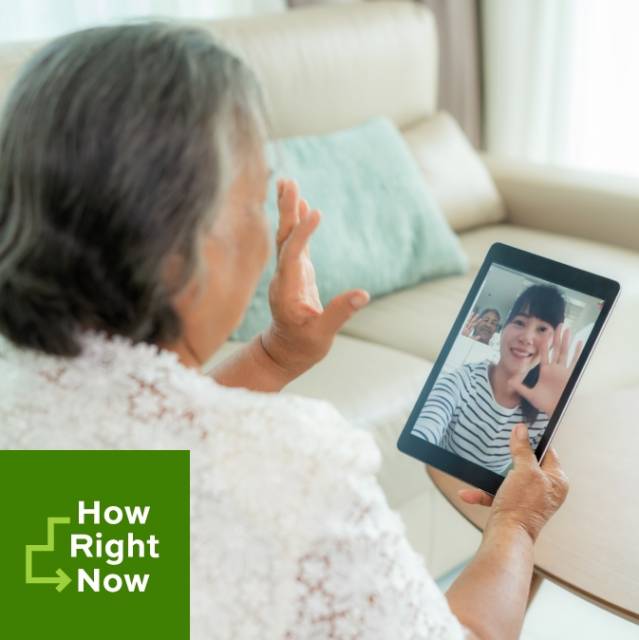You are here
How Right Now: You're #NotAlone
How are you feeling? No, really. Before you respond with “I’m fine,” the How Right Now mental and emotional well-being campaign recommends taking a minute to check in with yourself as part of May’s Mental Health Awareness Month. Every one of our lives has been touched by this pandemic in some way, whether through stress and anxiety, prolonged isolation or personal loss. So whatever kind of emotion you may be dealing with at the moment, you’re definitely #NotAlone.
And How Right Now has a collection of helpful tools, links and advice to help us continue to cope and be resilient in the face of ongoing uncertainty.
#SelfCare is not just a hashtag. “Improving your emotional well-being and social connectedness is critical to your overall health,” offers Craig W. Thomas, PhD, the director of the Division of Population Health at the Centers for Disease Control and Prevention (CDC). “The smallest things can help—from reaching out to someone you care about to taking a few minutes to do something relaxing.”
Karen Hacker, MD, MPH, the director of the CDC’s National Center for Chronic Disease Prevention and Health Promotion, agrees. “You can also safeguard your physical health by eating well, being active, getting screened for chronic conditions and receiving the COVID-19 vaccine when eligible.”
Developed by NORC at the University of Chicago, How Right Now, and its Spanish language site Qué Hacer Ahora, reminds us that conversation is a powerful tool, too. In fact, they’ve collected some talking points to help get you started, as well as some tips for listening with compassion. Instead of responding to a friend, neighbor or loved one with “It is what it is,” How Right Now recommends saying “I’m listening” or “I understand.”
Conversation Starters
- How’s it going for you these days?
- How are you keeping in touch with family or friends?
- What are you doing to get by?
- What are you doing to take care of yourself?
- Are there things we can do together to help each other?
Another coping technique is literally counting your blessings—expressing gratitude for the good things in your life, while also taking time to grieve for what you and your family may have lost.
According to Mental Health America, more than 1.5 million people who took the mental-health screening quiz on its website reported the highest-ever rates of depression, anxiety, loneliness and isolation, with notable increases in various symptoms among youth, LGBTQ+, Black, Native, Latinx, and AAPI populations in 2020.
So, if you or someone you know is suffering, reach out to a friend, family member or to How Right Now, which provides direct links and hotline numbers for organizations like the National Suicide Prevention Hotline, Mental Health America, the United Way, the National Alliance on Mental Illness, Trans Lifeline, the Center for American Indian Health and many more.

